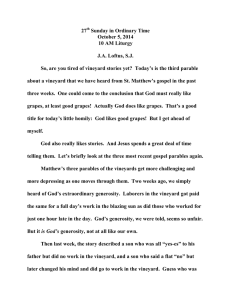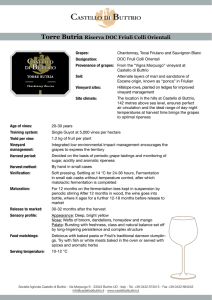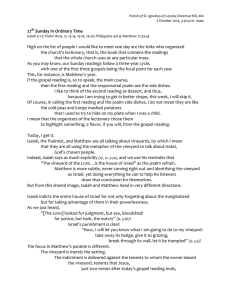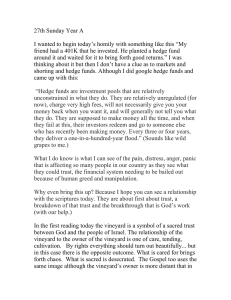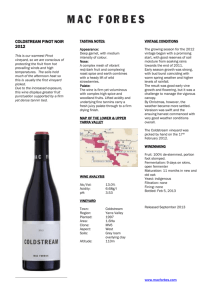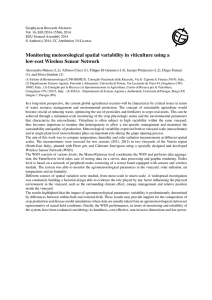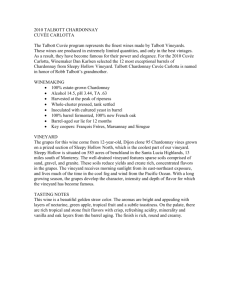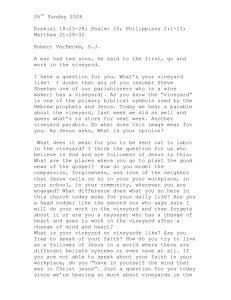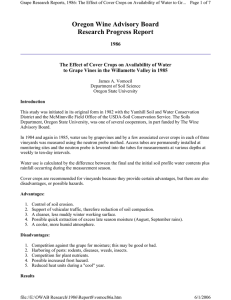27 Sunday in Ordinary Time October 2, 2011 12 Noon Liturgy
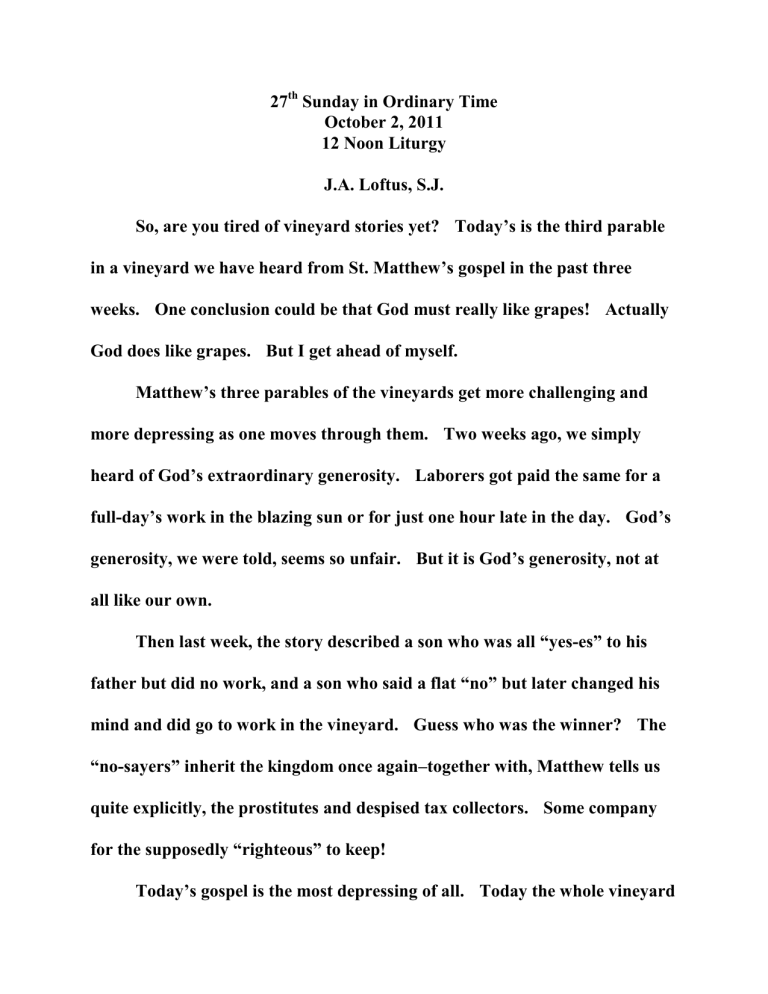
27 th
Sunday in Ordinary Time
October 2, 2011
12 Noon Liturgy
J.A. Loftus, S.J.
So, are you tired of vineyard stories yet? Today’s is the third parable in a vineyard we have heard from St. Matthew’s gospel in the past three weeks. One conclusion could be that God must really like grapes! Actually
God does like grapes. But I get ahead of myself.
Matthew’s three parables of the vineyards get more challenging and more depressing as one moves through them. Two weeks ago, we simply heard of God’s extraordinary generosity. Laborers got paid the same for a full-day’s work in the blazing sun or for just one hour late in the day. God’s generosity, we were told, seems so unfair. But it is God’s generosity, not at all like our own.
Then last week, the story described a son who was all “yes-es” to his father but did no work, and a son who said a flat “no” but later changed his mind and did go to work in the vineyard. Guess who was the winner? The
“no-sayers” inherit the kingdom once again–together with, Matthew tells us quite explicitly, the prostitutes and despised tax collectors. Some company for the supposedly “righteous” to keep!
Today’s gospel is the most depressing of all. Today the whole vineyard
is simply given to new tenants. The old tenants are led to death and decay.
A new day has dawned in the vineyard.
On one level this third parable is the easiest to understand. It’s actually more of an allegory than a true parable. Jesus’ true parables leave one wondering usually: what exactly did that mean? This story is crystal clear as an allegory. Each and every figure represents one particular person in the unfolding drama. As Dan Harrington explains it: “the landowner is
God, the vineyard is Israel as God’s special people, the tenants are the religious and political leaders of Israel, the harvest is the fullness of God’s kingdom...the servants are the prophets, and the landowner’s son is Jesus”
( America ).
It is all very neat and is crystal clear to St. Matthew’s audience. This is a story about the wickedness of Israel’s leadership and their replacement in a new Covenant of faith. Matthew has in mind, no doubt, the 70 AD destruction of the Jerusalem temple and the on-going hostility between the synagogue Jews and the new Christian communities. It is a clearly parallel story to Isaiah’s lament over the attack of the Assyrian army on Jerusalem in the eighth century BC (today’s first reading). And today’s psalm (80) echos the same images drawn from the sixth century B.C. In short, St. Matthew is
2
saying simply that there are new tenants in the vineyard. And there is new leadership to follow.
In this allegorical interpretation, the story is a stern condemnation of the religious and political leadership of Matthew’s own time. But that’s really too simple an interpretation for us centuries later. Today’s gospel is not just a history lesson. It is a direct challenge to us as well. The living gospel always is a direct challenge and a direct invitation to each generation that hears it.
Let me suggest just one path of interpretation that seems obvious to me in today’s church. In the context of all three parables we have heard, a few things seem clear. It does not matter so much how long you work in the vineyard; you can come late to your vocation. What matters is that you’re there when it counts. God just wants grapes.
Secondly, it doesn’t seem to matter much whether you say you are going to work hard and promise to work hard, it just matters that you show up in the vineyard eventually–like the “no-sayer” son in the second parable.
Your “yes” can be as reluctant as you want. Just be there when it counts.
God wants grapes.
Finally, be careful of the company you shun in your day-to-day life:
3
the poor, the homeless, the despised, the un-welcomed in your society, even the prostitutes, and sex-workers and drunkards. Be careful! They will all be your co-inheritors in the kingdom. Think about it! Some of these types do not seem like very nice people. That’s scary to me. But also kind of neat in a bizarre way.
My brothers and sisters, the vineyard still grows and needs laborers.
And God still wants more grapes. It is not just leadership that should feel a bit squeamish today, it’s all of us. I cannot tell you what you are supposed to do in the vineyard. I only barely know what I think I’m doing in the vineyard. What I can keep repeating, though, is this: it is clear to me that
God likes grapes! To those with ears, try to hear.
4
